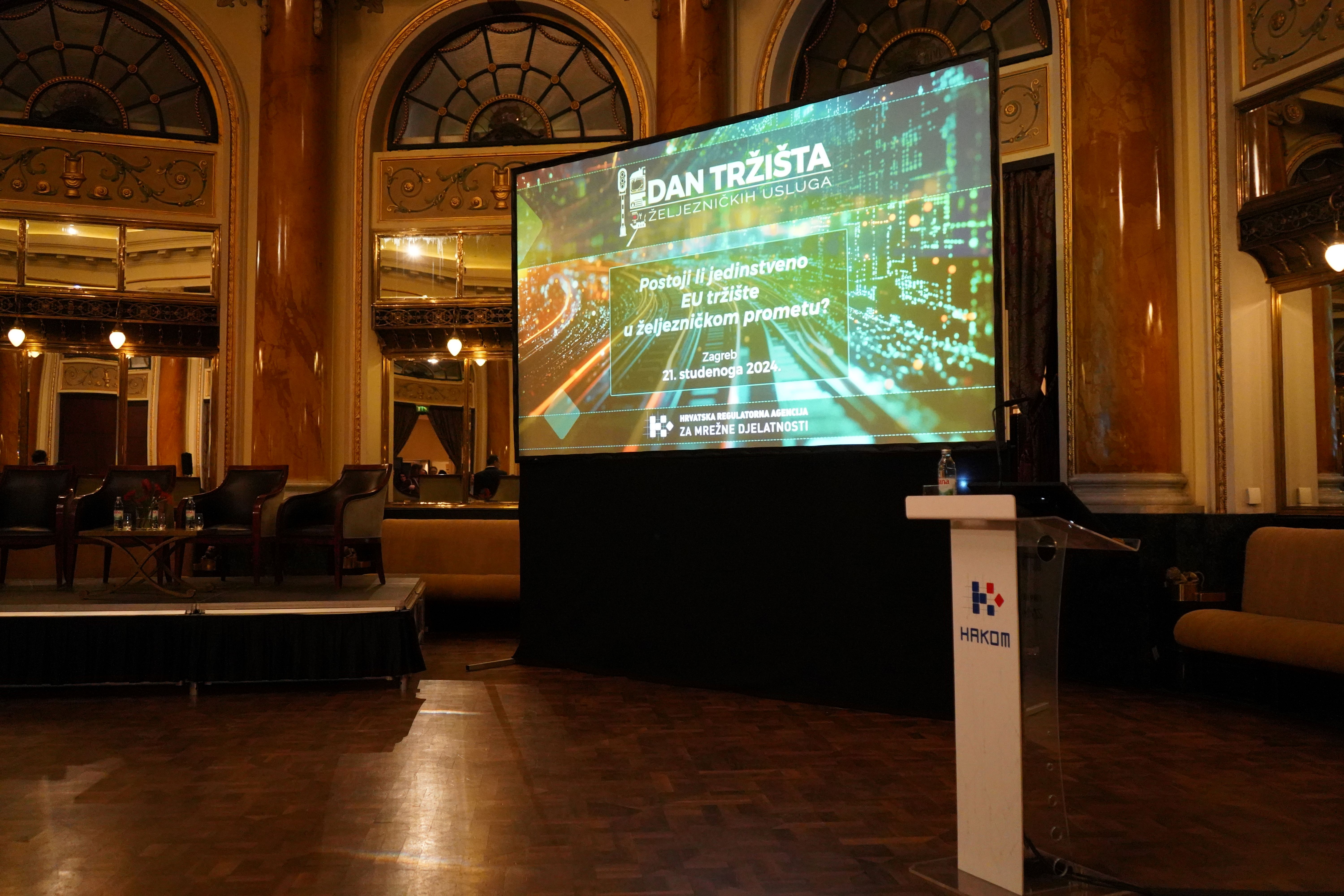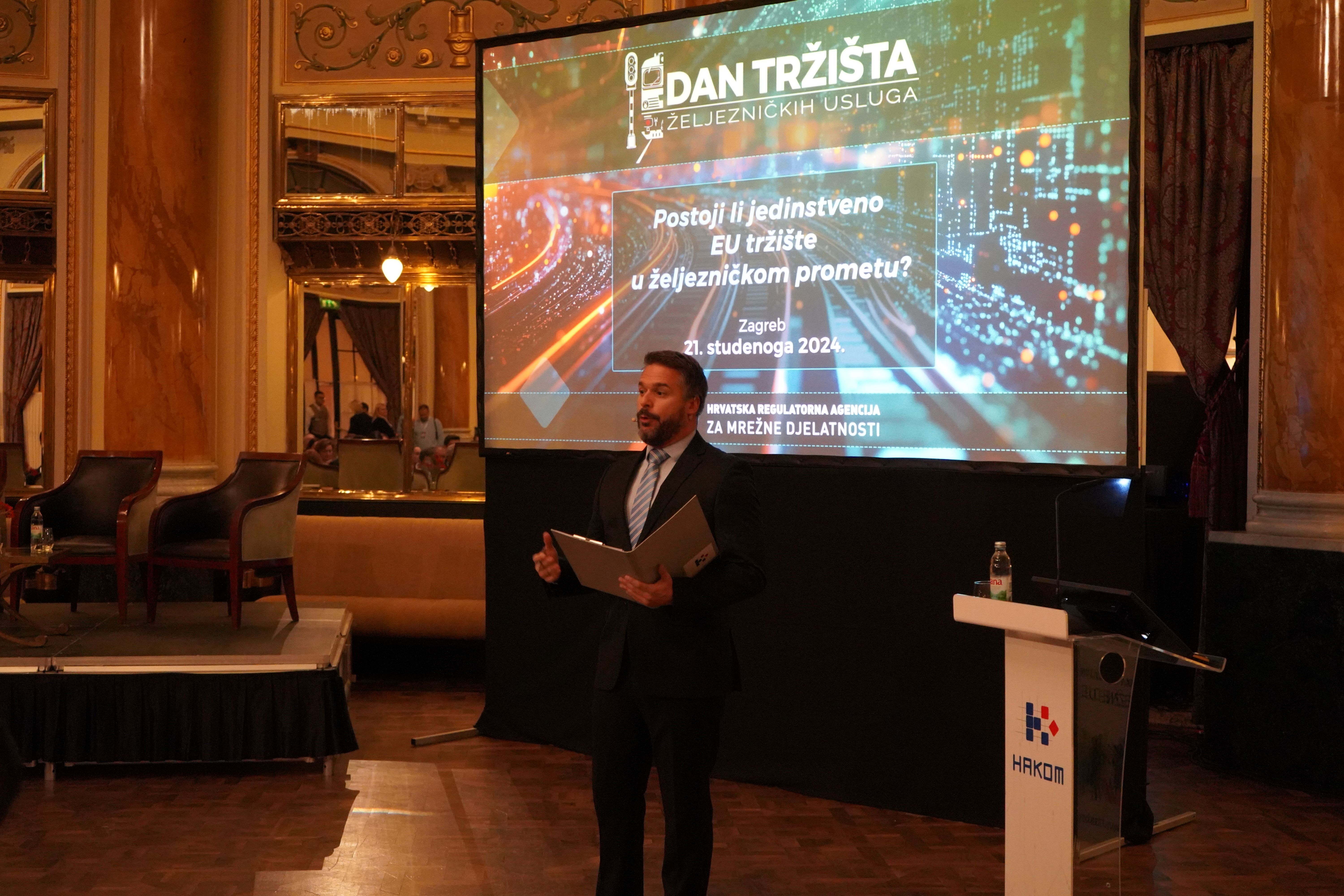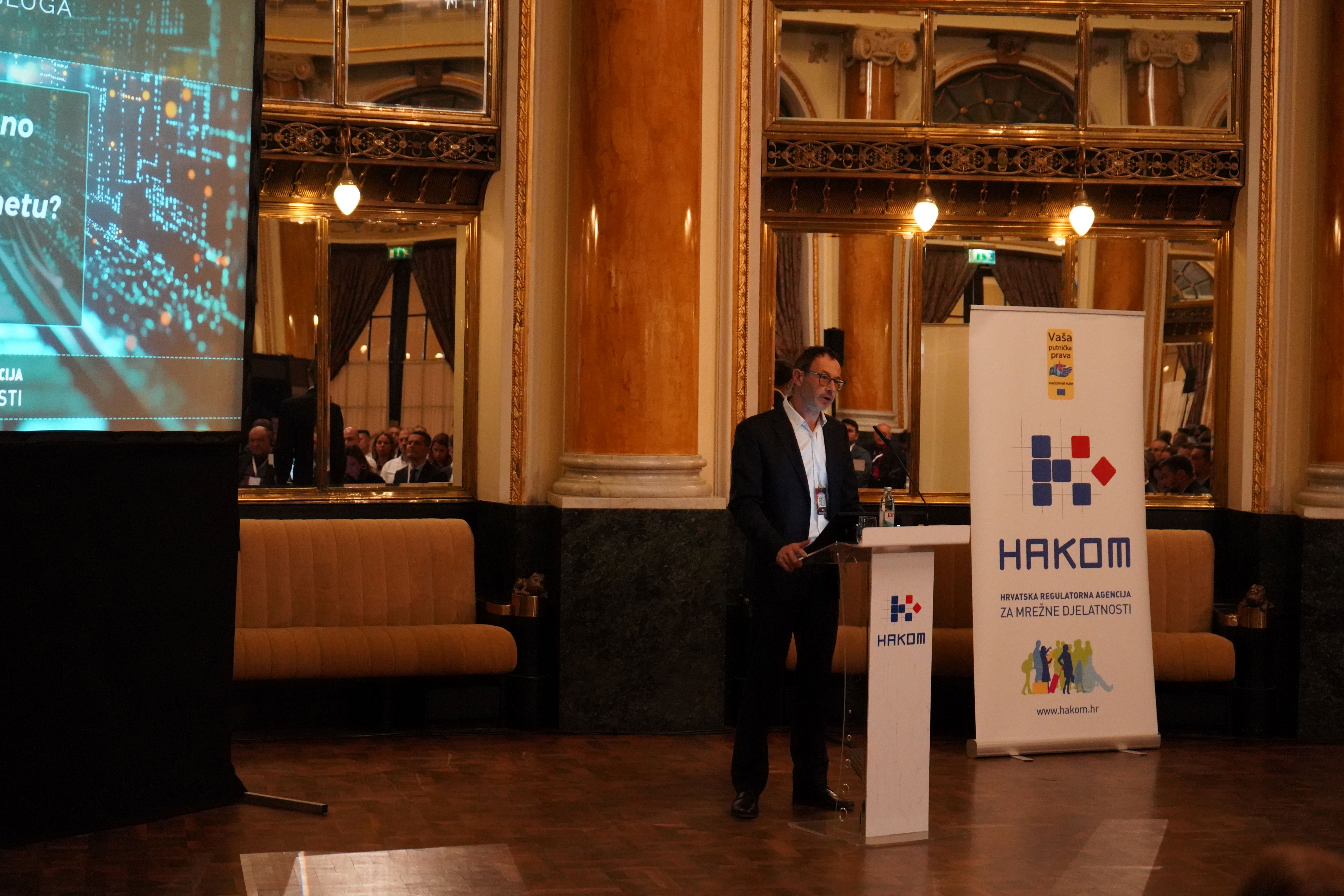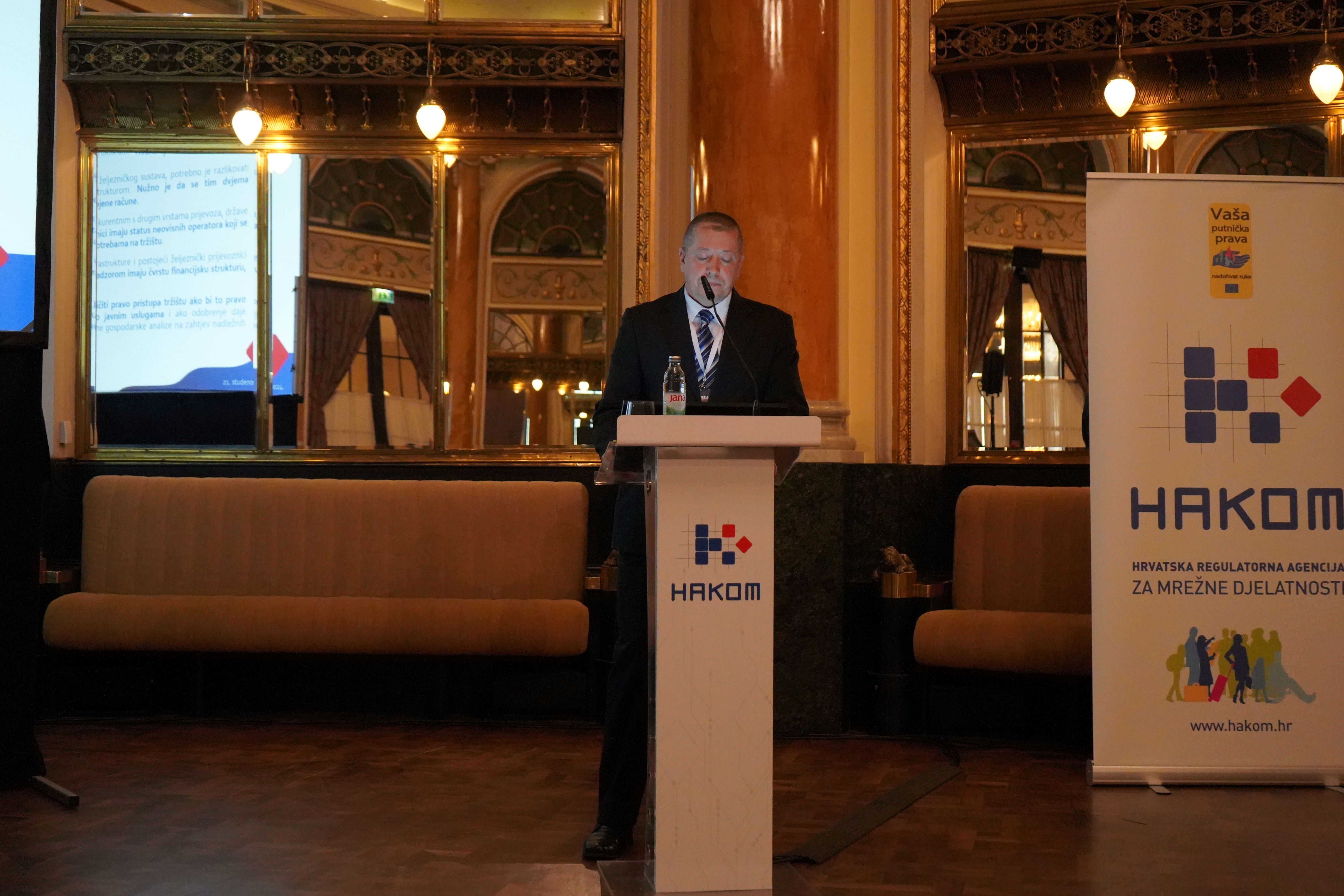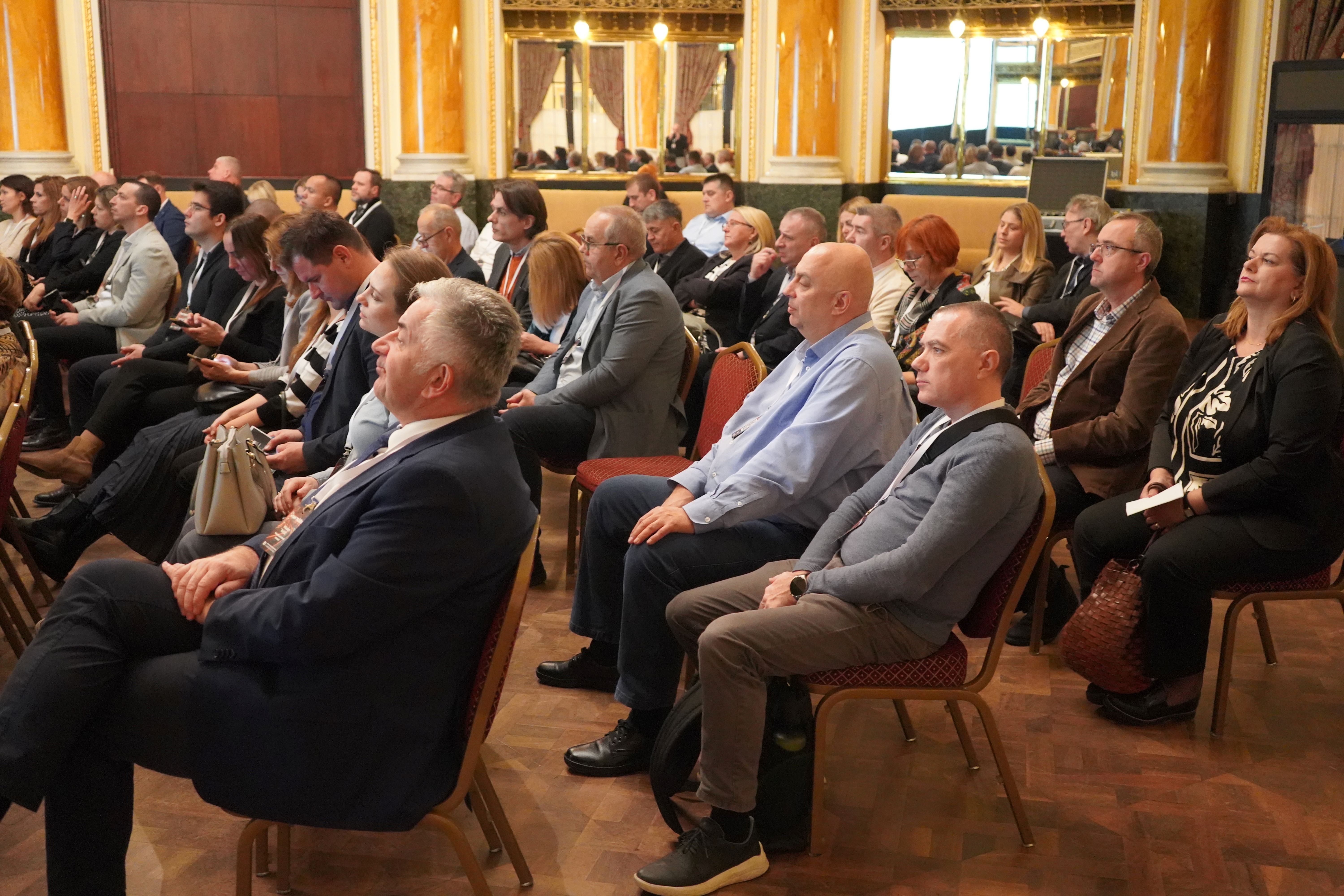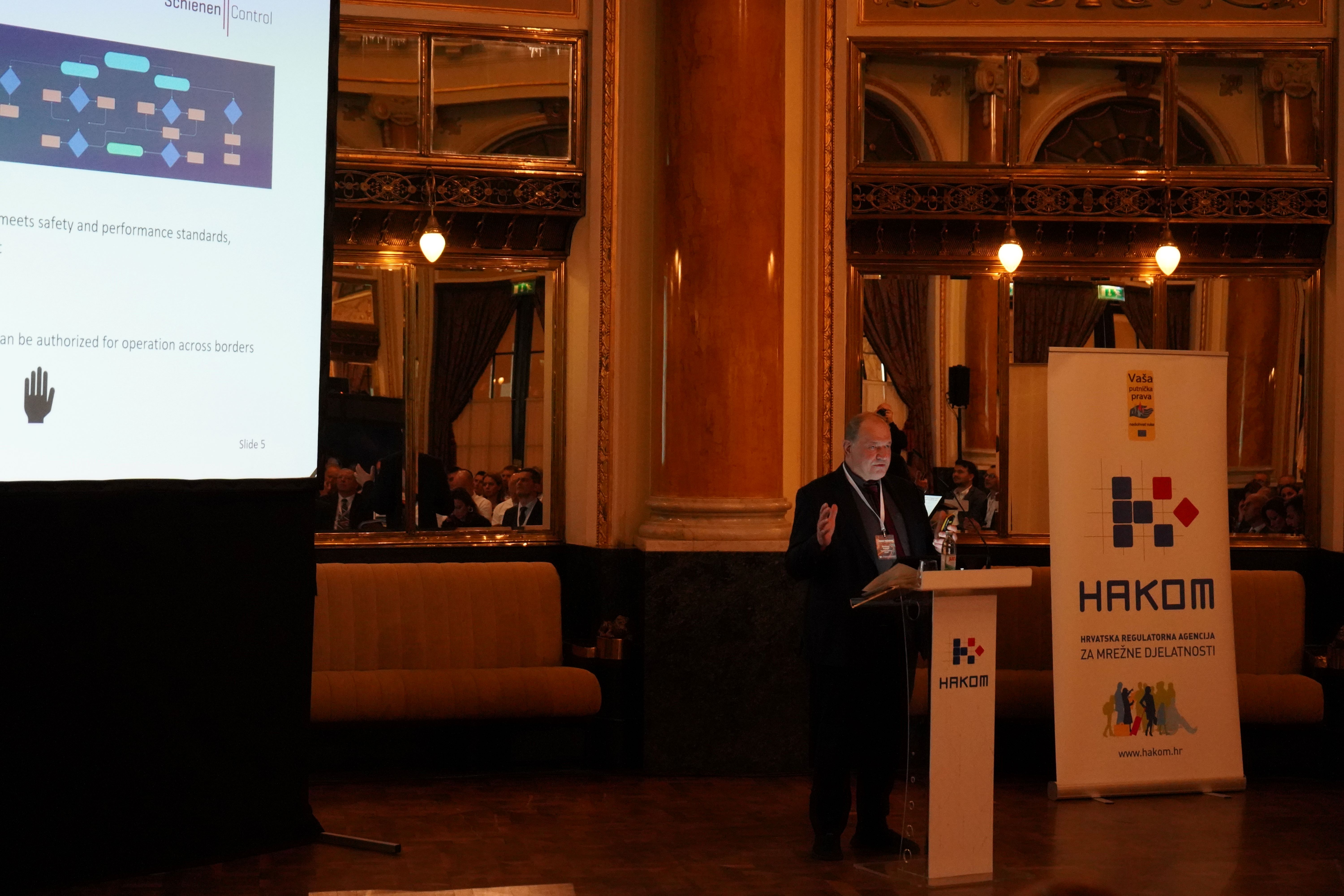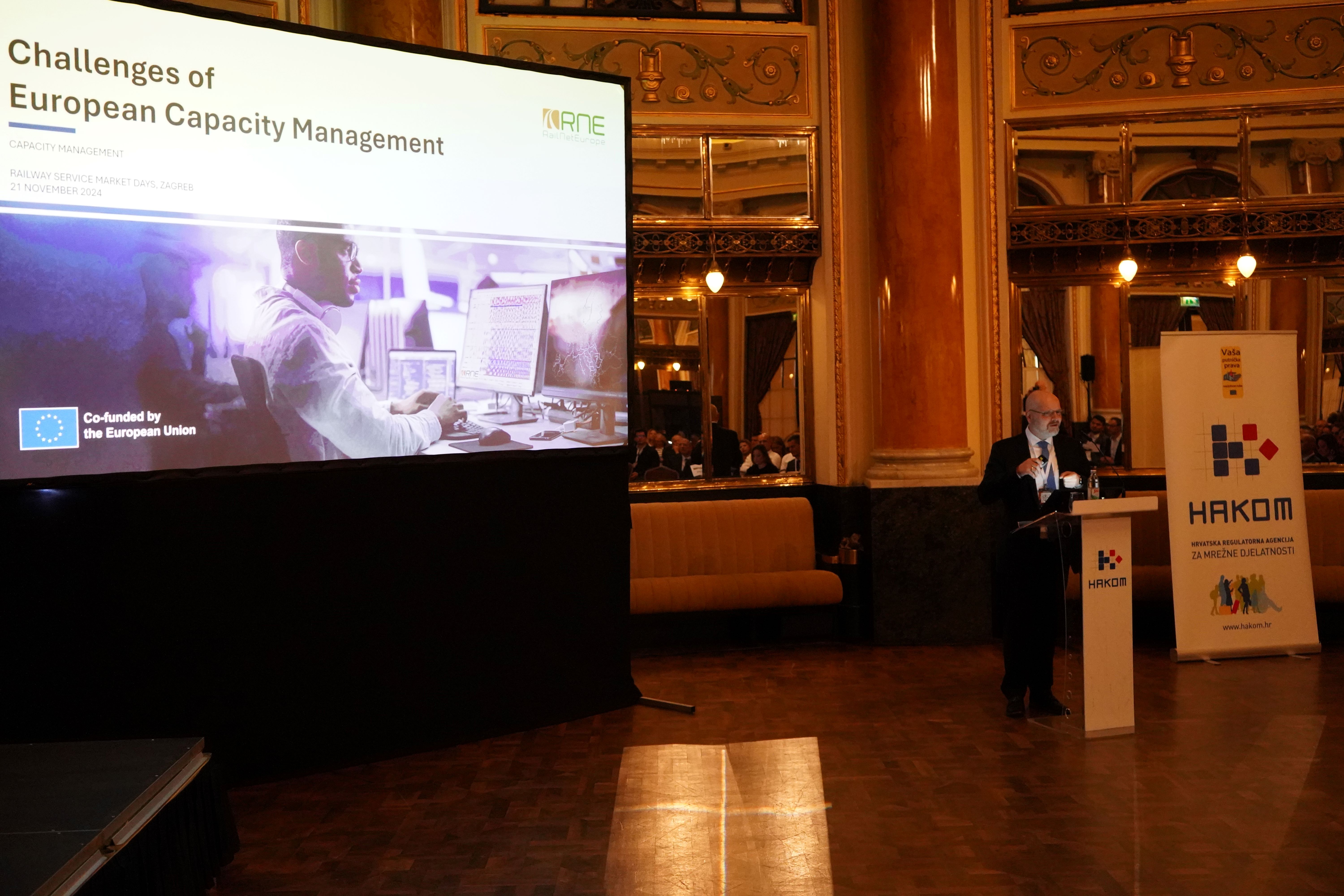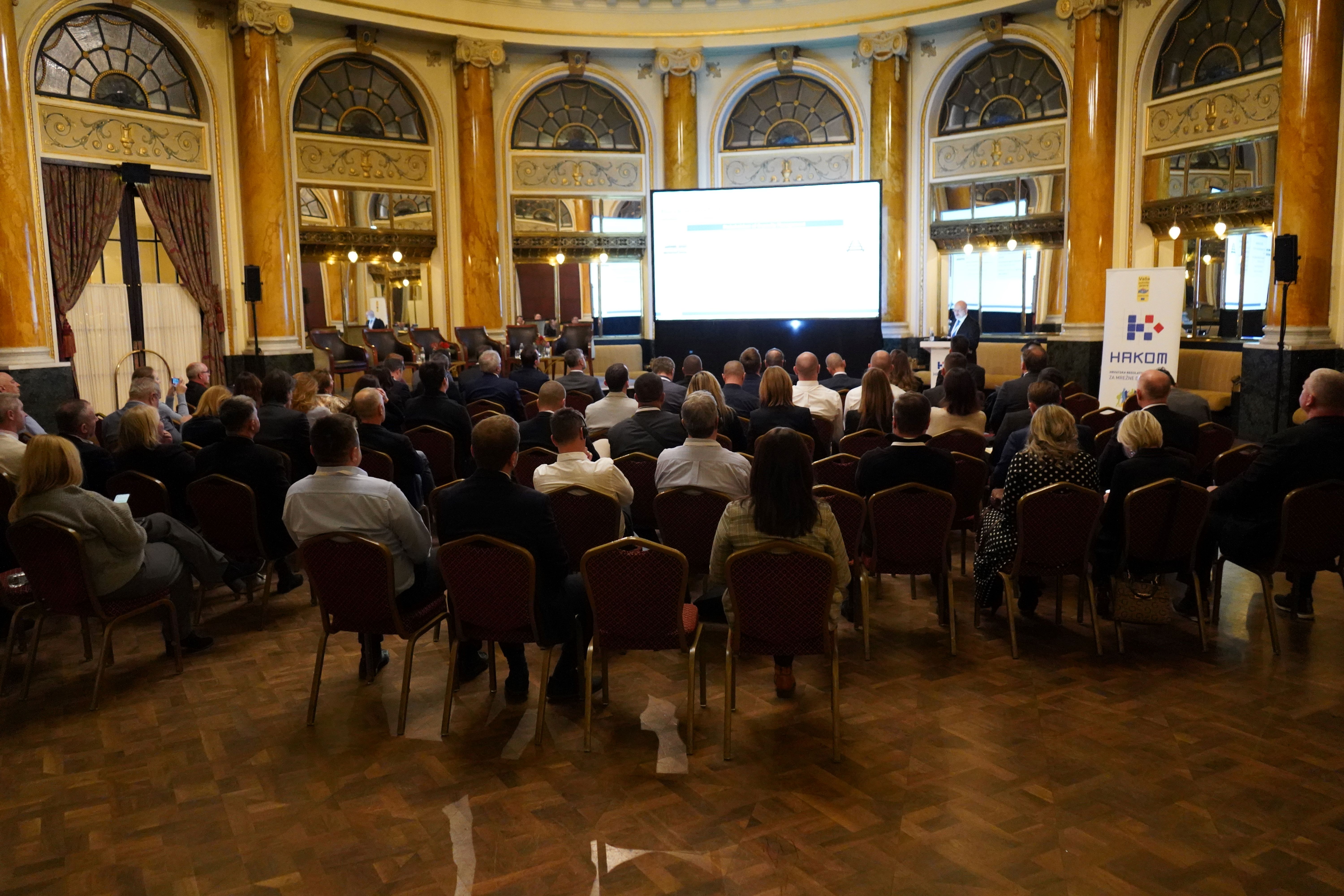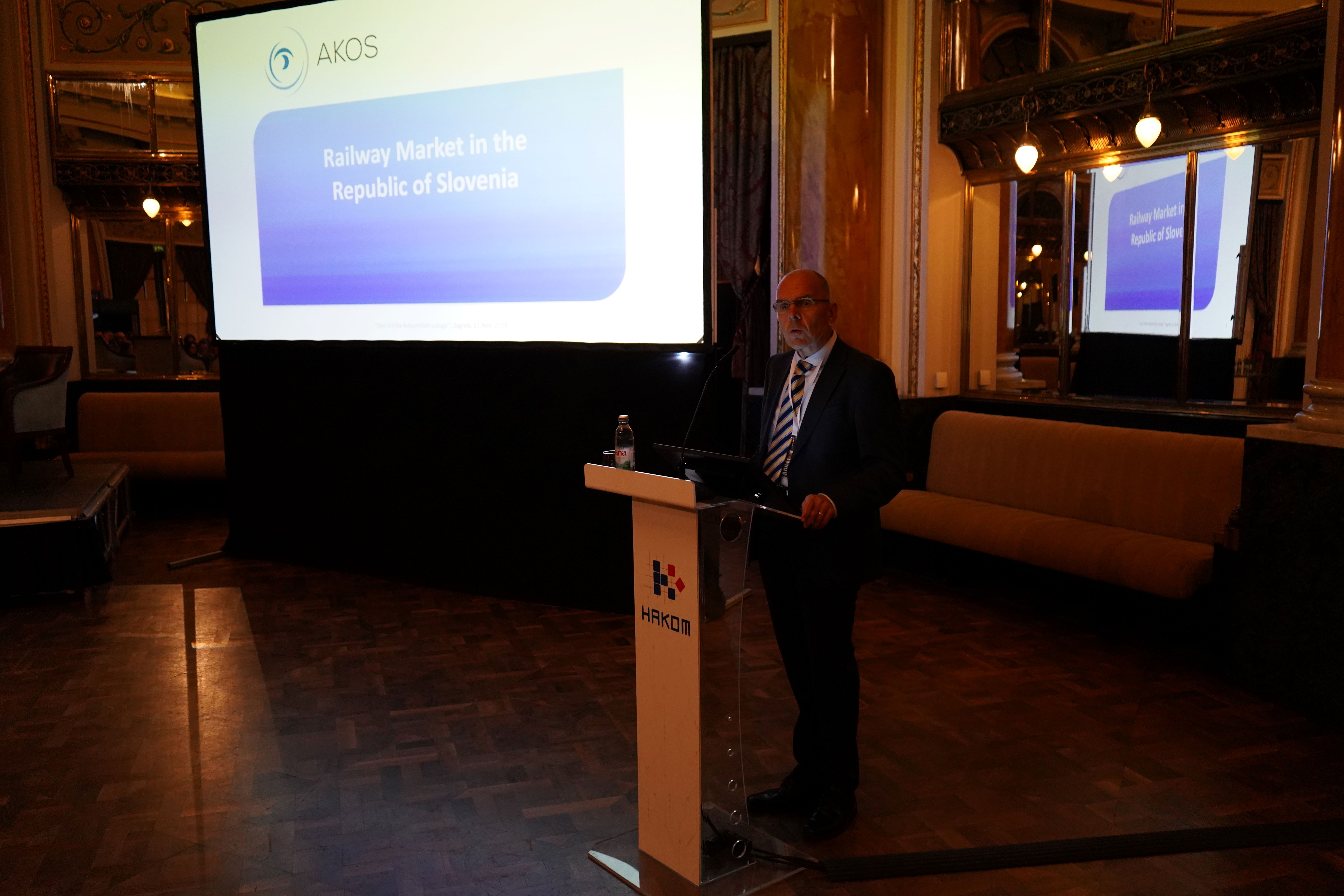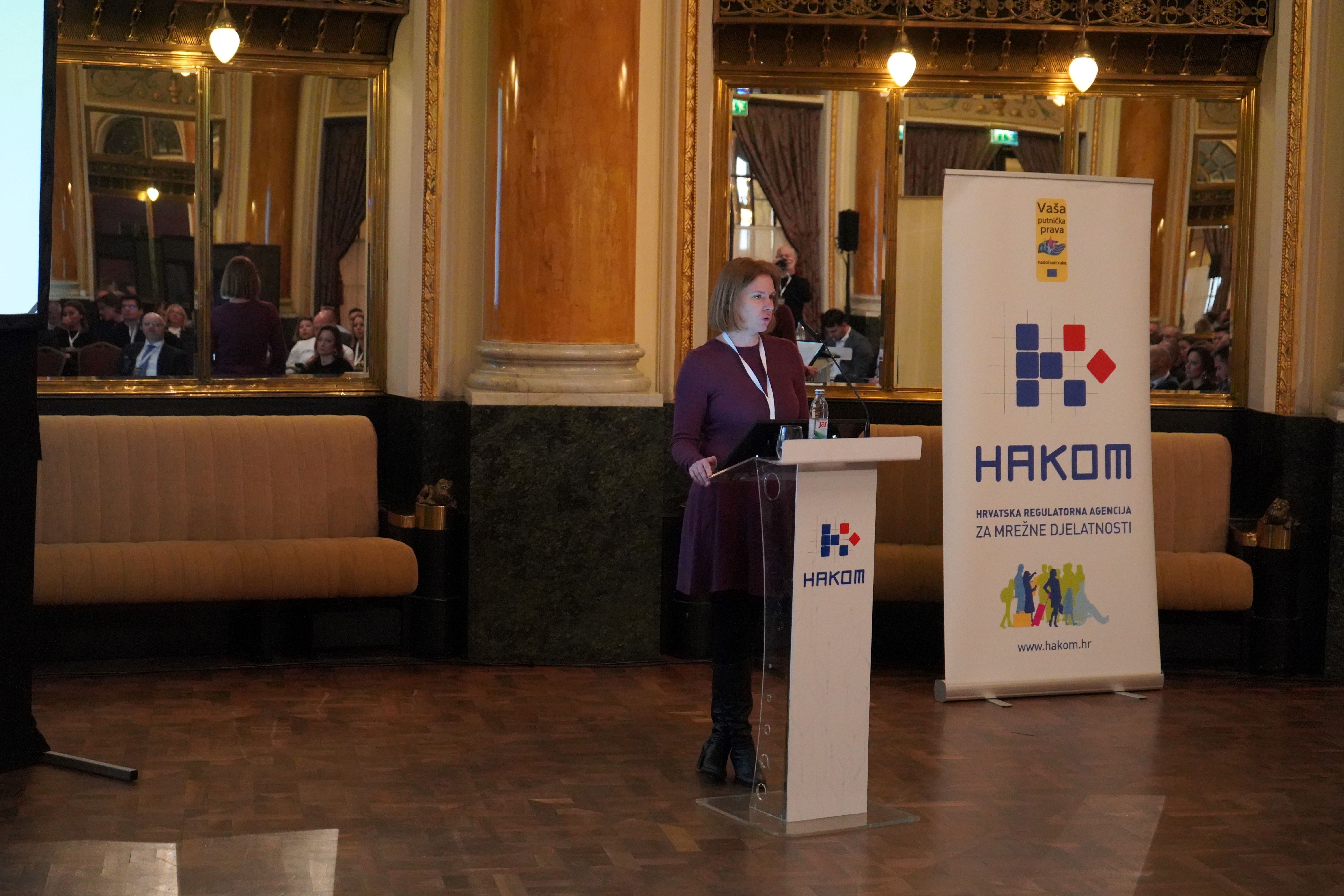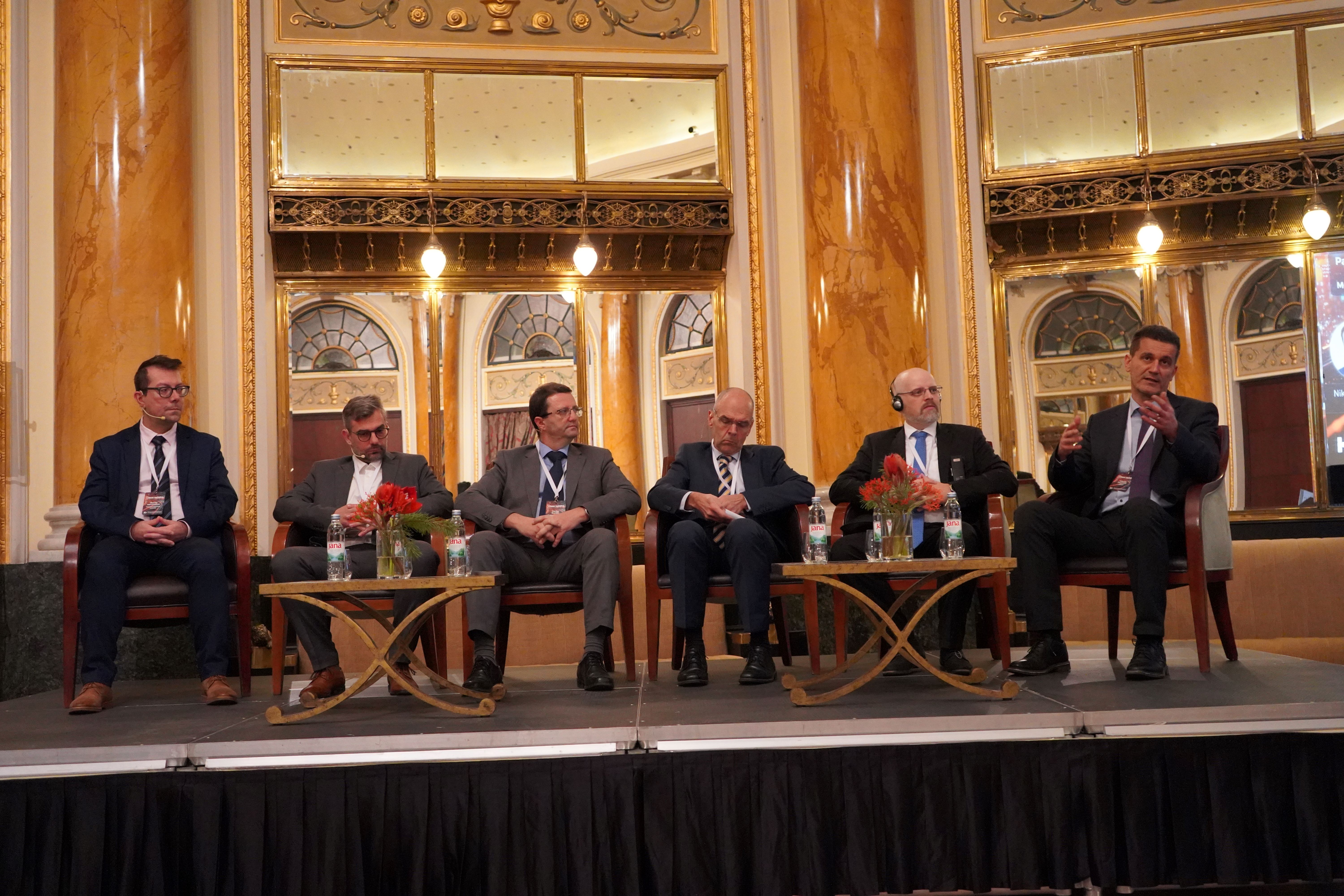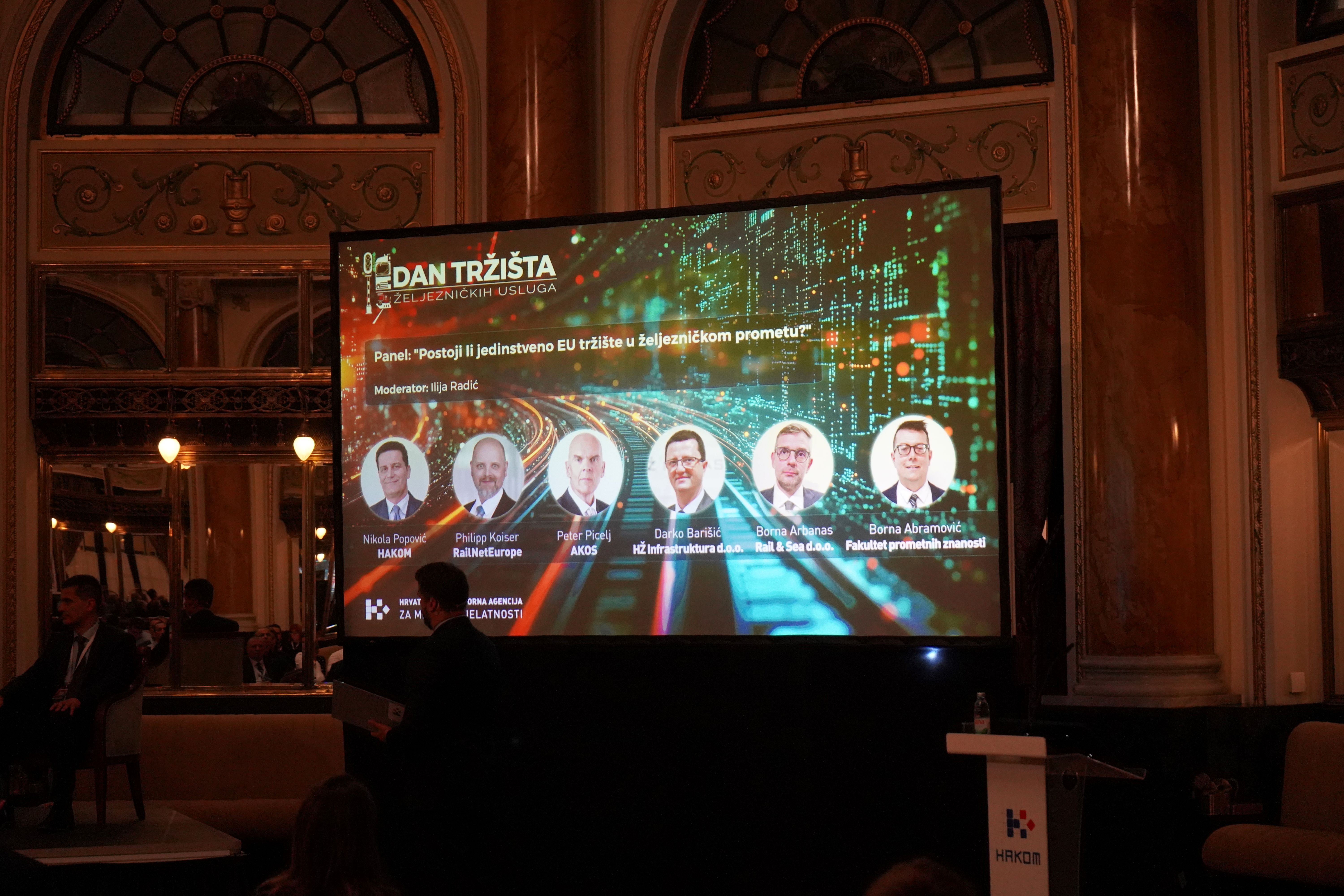International Conference on the Single European Rail Market
ZAGREB, 21 November 2024 - The growth and development of the railway system within the EU, along with further liberalisation and competition in the rail services market, depend on the development and implementation of railway packages that gradually and irreversibly create a single European railway space. This was the discussion topic at the Rail Services Market Day, organised by the Croatian Regulatory Authority for Network Industries (HAKOM).
The international conference, held at the Esplanade Hotel in Zagreb, brought together around 100 stakeholders from the rail services market, both domestic and from neighbouring countries. The event was opened by Mislav Hebel, Deputy Chair of HAKOM’s Council, who highlighted the role of regulatory bodies in establishing a single European railway space.
“HAKOM collaborates intensively and exchanges information with stakeholders in Croatia’s rail market, with regulatory bodies in other countries, and with the European Commission, aiming to align common principles and best practices in the rail market. The role of regulators is particularly important because member states are required to ensure a comparable regulatory level to establish free and fair market competition in the European rail market,” said Hebel.
Divergent Regulations Often Hinder the Achievement of Goals
In the first part of the conference, participants were presented with a comparison of experiences and statistical data on the rail services markets in Slovenia, Austria, and Croatia, by Peter Picelj from the Agency for Communication Networks and Services of the Republic of Slovenia, Robert Sappl from Schienen Control GmbH of Austria, and Ivica Škrtić from HAKOM.
“There are many challenges that need to be tackled. Different countries have different specific rules, which often complicates achieving the goals of creating a single European market. Variations in technical specifications can also limit interoperability, and the lengthy process of obtaining permits can delay cross-border services and discourage investment,” emphasised Robert Sappl.
Borna Abramović, a professor at the Faculty of Transport and Traffic Sciences, discussed the European Union's strategic initiatives aimed at creating a fully integrated and single railway network. Maša Viduka spoke about the activities of the Ministry of the Sea, Transport, and Infrastructure related to improving the rail services market. An important aspect of creating a unified European railway space is the development of high-quality timetables across all member states, which has been the focus of RailNetEurope for several years. This organisation brings together European railway infrastructure managers. Philipp Koiser, Head of the Capacity Management Department at RailNetEurope, provided further insights into the redesign of guidelines and procedures for timetable development, which aim to facilitate operations for both operators and infrastructure managers, thereby making the European market more efficient.
Is There a Single EU Market for Rail Transport?
.Following the presentation session, a panel discussion was held on the topic "Is There a Single EU Market for Rail Transport?" The panel included Nikola Popović, a member of the HAKOM Council; Philipp Koiser, Head of the Capacity Management Department at RailNetEurope; Peter Picelj from the Agency for Communication Networks and Services of the Republic of Slovenia; Borna Abramović, a Professor at the Faculty of Transport and Traffic Sciences; Borna Arbanas, a Board Member of Rail&Seea Ltd.; and Darko Barišić, a Board Member of HŽ Infrastructure Ltd.
The discussion provided answers to numerous questions and sparked new ones, all aimed at improving the connectivity of the European railway space. The importance of timetables in passenger transport was emphasised, with a particular focus on punctuality, frequency, and good connectivity between major hubs that ensure seamless travel connections for passengers. In freight transport, the key is to establish stable train routes between ports and border crossings.
-A good timetable is the only way to convince transport users to choose rail," emphasised Philipp Koiser from RailNetEurope. He also emphasised that more precise timetable planning must incorporate the development of a capacity strategy, which will offer insight into the intentions of infrastructure managers and applicants for the upcoming timetable, as well as address traffic flow management.
In conclusion, the panel participants agreed that all European markets face their own challenges and that there are still many obstacles to overcome in order to establish a more efficient European railway space.
For additional information please contact:
Croatian Regulatory Authority for Network Industries (HAKOM)
- Roberta Frangeša-Mihanovića 9 Street
- 10110 Zagreb, Croatia
- Tel. + 385 (0) 1 700 70 07
- Fax + 385 (0)1 700 70 70
Media inquiries can be submitted online using HAKOM’s official website: www.hakom.hr
About Hakom
HAKOM - Croatian Regulatory Authority for Network Industries – ensures preconditions for a fair market competition, stable growth and environment for innovations in the electronic communications and postal services market. HAKOM protects users’ interests and the possibility of choice among various communications and postal services at affordable prices, defines sustainable competitive conditions for operators and service providers under fair conditions for return on investment, and provides support to economic growth, public services and the quality of life in the Republic of Croatia by using modern technologies. HAKOM’ strategic goals are: to promote regulation of the electronic communications and postal services market, to support growth of investments and innovations in the electronic communications and postal services market, to provide efficient use of limited resources, to accelerate the growth of broadband products and services, to provide affordable offers of communications and postal services, to provide protection and informing of users, to build an efficient and comprehensive information system, to define and implement efficient processes, and to acquire multi-disciplinary expertise in market regulation.

